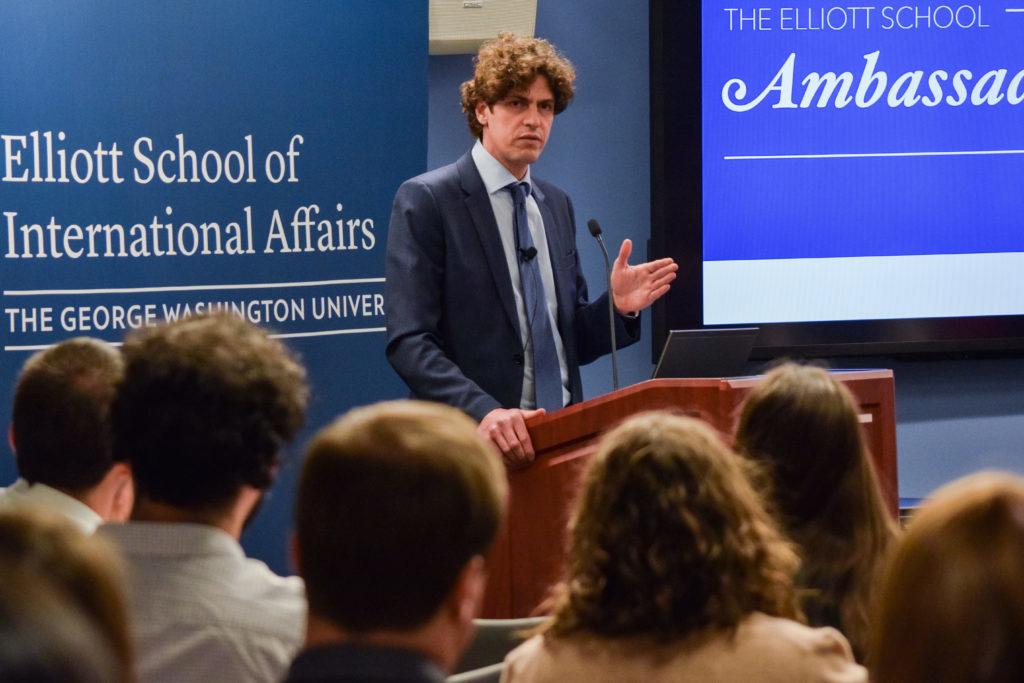Updated: March 9, 2017 at 1:00 p.m.
Martín Lousteau, the Argentinian ambassador to the United States, spoke to dozens of attendees in the the Elliott School of International Affairs’ Lindner Family Commons Tuesday evening about the unique political atmosphere of Argentina and the nation’s bilateral relations with the United States.
Lousteau said that Argentina has been quickly re-engaging with the world as populism has declined, but said the nation is not yet totally free from populist politics.
“It is easy to defeat populism because eventually populism defeats itself,” Lousteau said. “It is not so easy to change or do away with the populist virus once the virus enters in people’s mind and that is a task that Argentina and the region has to deal with.”
Lousteau said that Argentina is experiencing many “firsts” right now, like voters’ increased interest in politics, a more moderate government and that a woman was elected the governor of Buenos Aires state for the first time.
“This is the first time in one hundred years that the government is neither radical nor Peronist,” Lousteau said.
He added that this is also the first time the Peronist Party, the largest political party in Argentina, has been divided in an election to the extent that they lost the election.
Lousteau said that with the rise of social media, voters have become more aware of issues when casting their ballots. He said that 50 years ago, the media was state-owned and there were few channels of mass communication, but now the media explores more complex questions.
Reuben Brigety, dean of the Elliott School, asked Lousteau how President Donald Trump’s inauguration has been interpreted in Latin America. Lousteau said that if the United States is putting itself first, as the U.S. has suggested it will, then Argentina will have to follow suit.
“I’m convinced that Argentina’s foreign policy should be, ‘Argentina first,’” Lousteau said. “America’s stance can either damage another country or provide a new opportunity.”
He added that the nation must consider the intentions and actions of other international actors now more than ever and that the Argentinian people are eager to work on solving critical issues that face the nation.
“When we have Argentina first in mind we must think of how every decision of other countries will affect us,” he said. “There is anxiousness by the population to get things solved.”
This post has been updated to reflect the following correction:
Due to a reporting error, The Hatchet incorrectly quoted Lousteau as describing past Argentinian governments as terrorist. He used the term Peronist. We regret this error.





